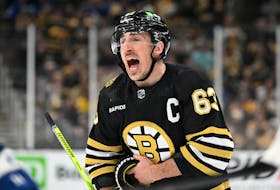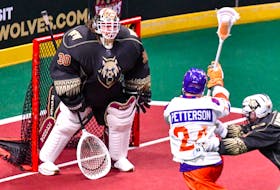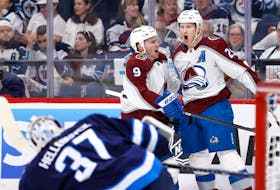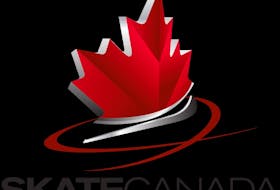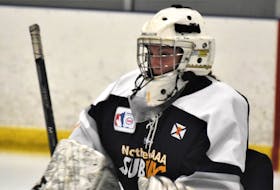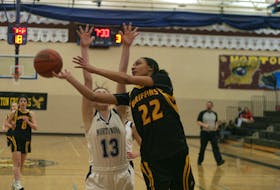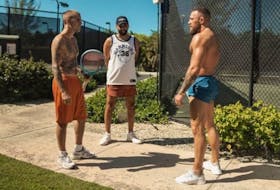VICTORIA - Alwyn Morris held an eagle feather high during a historic medal ceremony where he became the first and only Canadian aboriginal athlete to win gold at an Olympic Games.
It was in 1984 - 25 years ago - in Los Angeles when Morris, a Mohawk from Kahnawake, Quebec, and his partner Hugh Fisher won gold in the men's 1,000 metre, doubles kayak race.
Morris's gold medal victory is a rare achievement for any athlete, but even more rare for an aboriginal competitor. He joined the great American aboriginal runners Jim Thorpe and Billy Mills as the only three North American aboriginals to ever win gold at the Olympics.
Morris, now 52, says his eagle feather salute in Los Angeles allowed him to say everything he wanted to his family, aboriginals, Canadians and the world, without uttering a word.
"What I did on the podium was really important for me," said Morris in a telephone interview from Montreal.
First, he said, he needed to pay tribute to his grandparents who raised him through his youth. His grandfather died before he could witness Morris' achievement.
"He wasn't there any longer and I needed to be able to show my respect for what he had taught me and went through with me," said Morris.
He said he also needed to share the victory with aboriginals and show Canadians he was an aboriginal.
"It was pretty obvious I was there as an athlete representing Canada, and Canadians as a whole certainly were jubilant and happy that Hugh and I had accomplished our goal and brought home a gold medal for Canada," Morris said.
But, he added, "I am a Mohawk person, and I'm aboriginal in Canada and it was important for me to be self identified in order to share that with the other part of who I am."
So far, there are no aboriginal athletes on Canada's 2010 Olympic team.
There were two aboriginal athletes on Canada's Summer Olympics team in Beijing, modern pentathlete Monica Pinette and wheelchair basketball team member Richard Peter.
Aboriginal scholar Janice Forsyth, a former nationally ranked Canadian track athlete, called for more support for aboriginal athletes during the North American Indigenous Aboriginal Games in Duncan, B.C. in August 2008.
Her National Roundtable report on Aboriginal Women in Sport found there are few supports for female aboriginal athletes in Canada
Aaron Marchant, an aboriginal from B.C.'s Squamish Nation, has developed one of Canada's few aboriginal focused sports programs, the First Nations Snowboard Team.
The snowboard team, formed in 2004, started with the goal of placing an aboriginal snowboarder on the Olympic podium in 2010, said Marchant.
That won't happen next year, but the program has expanded immensely and now has aboriginal snowboarders training on 10 mountains, nine in British Columbia and one in Washington State, he said.
Team members must maintain a C-plus average at school and meet strict no drug or alcohol standards, said Marchant.
Former Canadian ski team Olympian Steve Podborski worked with the team earlier and managed to help register the team and its athletes into the world of competitive snowboarding and management, he said.
Marchant, 32, said it's only a matter of time and money before an aboriginal snowboarder is on the Olympic podium.
"What we're doing is very positive," he said. "We're striving to get more athletes to have the support to get to that level. I definitely see our program progressing."
So far the team has managed to place four aboriginals on B.C.'s snowboarding team.
Morris says the First Nations Snowboard Team is a major first step towards developing Olympic-quality aboriginal athletes.
"It's still hit and miss," he said. "But if there wasn't a canoe club in Kahnawake, I would never have paddled."
Morris noted that aboriginal participating in the staging of the 2010 Games could also result in aboriginals on the Olympic podium in years to come.
The four aboriginal nations on whose traditional territory the Games are being held have played an active role in preparations and received lucrative land and cash deals from the government in exchange for their support.
When the Olympic flame arrived in Victoria to begin the torch run across Canada before the Games' opening ceremonies, the flame was brought to the legislature in a traditional dugout canoe by chiefs in aboriginal dress.
West coast aboriginal culture has also been included in some of the Games' merchandising.
Morris said that high profile could inspire would-be aboriginal athletes.
"If the Four Host Nations for the 2010 Games show that there is legacy, that there is ability, and it's more than just being the facade of the Olympic Games in Vancouver, that's going to lend a tremendous amount of support for athletes who are saying, 'You know what, that's where we were in 2010, and in 2020 we're at the top of the podium,"' he said.
Morris said he was lucky to have the opportunity to pursue his sport in Kahnawake, lucky he had strong family support, and lucky he had the opportunity to train and compete with the best.
Many aboriginals are not that lucky.
"If you are never introduced to a sport that you can excel at and really show interest in, then what are the chances of you getting there?" he said. "You have to have the right things happening."
High rates of poverty, unemployment, suicide, substance abuse and school drop outs are issues that face Canada's aboriginals, including its athletes.
B.C. Premier Gordon Campbell called the aboriginal focus and participation in the Winter Games a bonus for Canada and the world.
"The more we include aboriginal young people in all that we do, with an open invitation, then they're going to have lots of people who are going to be thriving, whether it's in the National Hockey League or elsewhere, they are going to be great," he said.
Morris held eagle feather high on Olympic podium 25 years ago, dreams 2010 is a new start
None
STORY CONTINUES BELOW THESE SALTWIRE VIDEOS
Two accused teenagers to remain in custody for at least two more weeks | SaltWire #newsupdate #news


